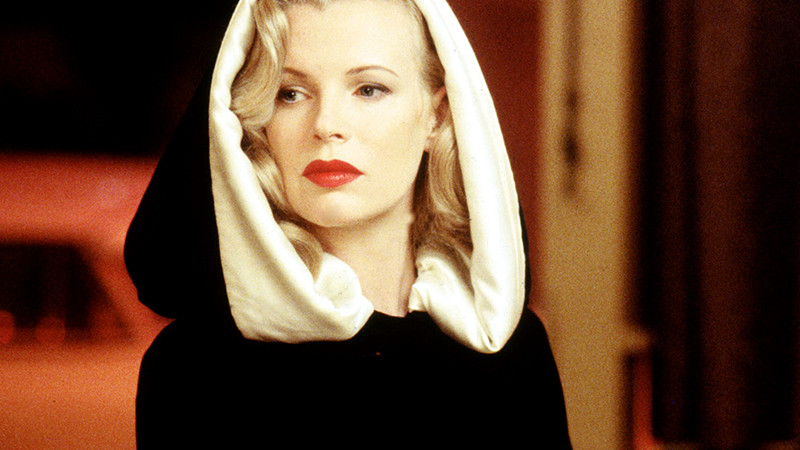
It’s hard to top the master of suspense, especially on his home field that covers a variety of genre movies, including thriller, horror and mystery. The mastery of Hitchcock lies in his simplicity to visually combine scenes into a very suspenseful storyline, almost all his films are one never-ending breathless emotion.
It’s a combination of story and experience that bring his movies to the forefront of the pages of any history book that deals with cinema. However, although unique, his style is often imitated, or should we say commented in other cinematic achievements. Be it via inspiration, admiration or sheer appreciation, Hitchcockian style movies have graced the big screen quite often.
We will now be looking at 10 movies that should vibrate with Hitchcock fans and are our recommendation when it comes to adding to your watch list. It’s certain that we will enjoy the amount of elements that the filmmakers put in them to make them seem as they were made from dear old Alfred.
Each film has something that it takes from Hitchcock’s body of work, our main focus will be to pin-point why Hitchcock admirers will be interested in these 10 movies, which can easily stand alone in their own merit.
1. Double Indemnity
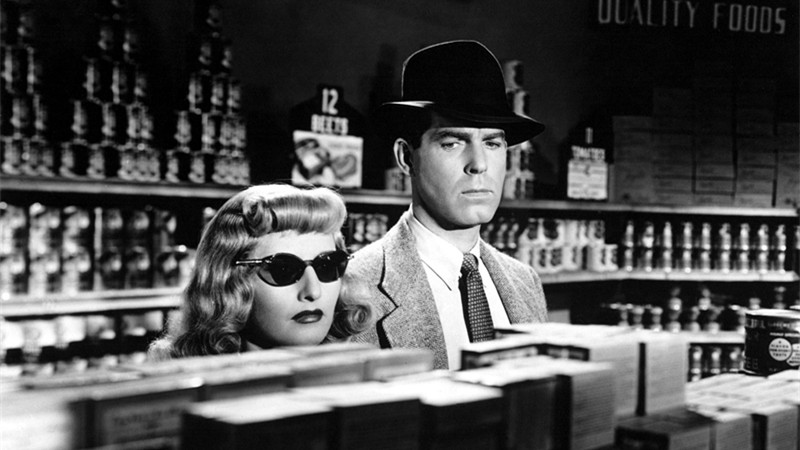
It’s the age of noir. Crime, thriller and suspense were running high in Hollywood. A lot of the industry was focused on bringing the chills and thrills in a very sophisticated manner through the “black film”, or film noir as it is known. A classical noir tale of a femme fatale guiding our protagonist into a whirlwind of trouble. A character driven crime-mystery that fits almost perfectly in the early Hollywood Hitchcock classics like Strangers on a Train, Shadow of a Doubt and Rebecca.
In Double Indemnity the characters are duping each other in a badly acted romance. The film reeks of the characters’ fakeness and their slow descent into the world of lies and deceitfulness. Its pace is reminiscent of what a Hitch plotted movie would look like.
It’s the play on the weakness of his characters. Wilder is a very good psychologist of human vulnerability. Perhaps that is why we like noir films, they shows us the hidden personas that look for consolation in money, thrills and sex.
2. Laura

A murder mystery that takes us on a rollercoaster ride all around and ends on a high note with one of the most memorable movie lines ever uttered. Laura is a classical mystery thriller that is building its suspense with all of the possible twists and turns that rock our emotions, as our main protagonist, the detective, charged with solving the case while starts falling in love with a woman that is dead.
Another very character driven noir, it lets us invest ourselves fully, before it stats duping us. It’s focusing our attention on one thing, while developing a whole new set of mysteries on the other end. It’s very HItchcockian in nature.
However, Preminger did add a lot of his own charm to the film, that was a clear indicator for what would come later from him. A career that can be hinted at in this well-executed noir.
3. The Night of the Hunter
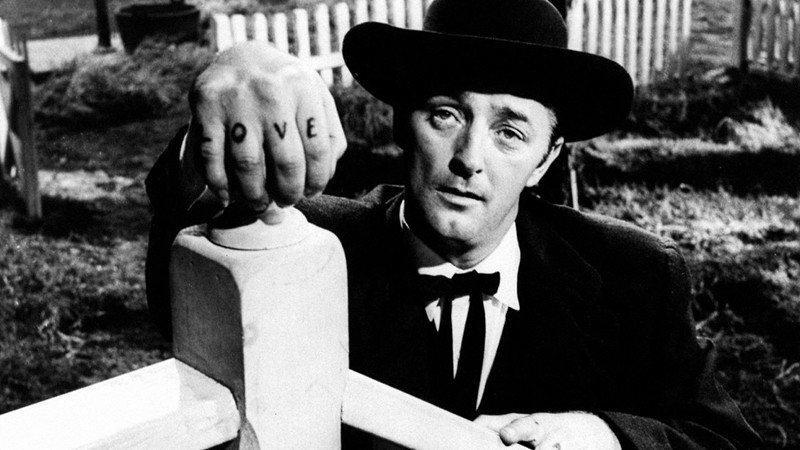
The once faded Night of the Hunter, is now a textbook film for its influence in pop culture, other young aspiring directors and cinephiles in general. Its captivating scenography is reminiscent of the Golden Age of German film in the 1920/30s and is a very direct descendent of German Expressionism.
The visuals are one of the best in film noir, it gives the film a very special place among other great movies, which is saying something. It’s hard to compare film noir between each other, but what makes The Night of the Hunter special is that among a palette of some of the best films made within its era, The Night of the Hunter is easily the best.
One thing that it has going for is the performance of Robert Mitchum, who delivers the role of his life. The so called revered serial killer – Harry Powell is a dominating character in the film, both in his personality and screen time. He makes his presence clear and known to us. In a period where Hitchcock brought the thrills, Laughton brings them to a new level that is what sets his masterpiece to be a real experience for our sight and sound.
Mitchum embodies what is perfect for a totally insane maniac who is double-faced and yet with every step, with every word, with every action he is a threat to all the wellbeing of the characters in the film. The film and the main character are one memorable batch that deserves to be commented way further than its own time, because they still bring shivers down our spine.
4. Witness for the Prosecution
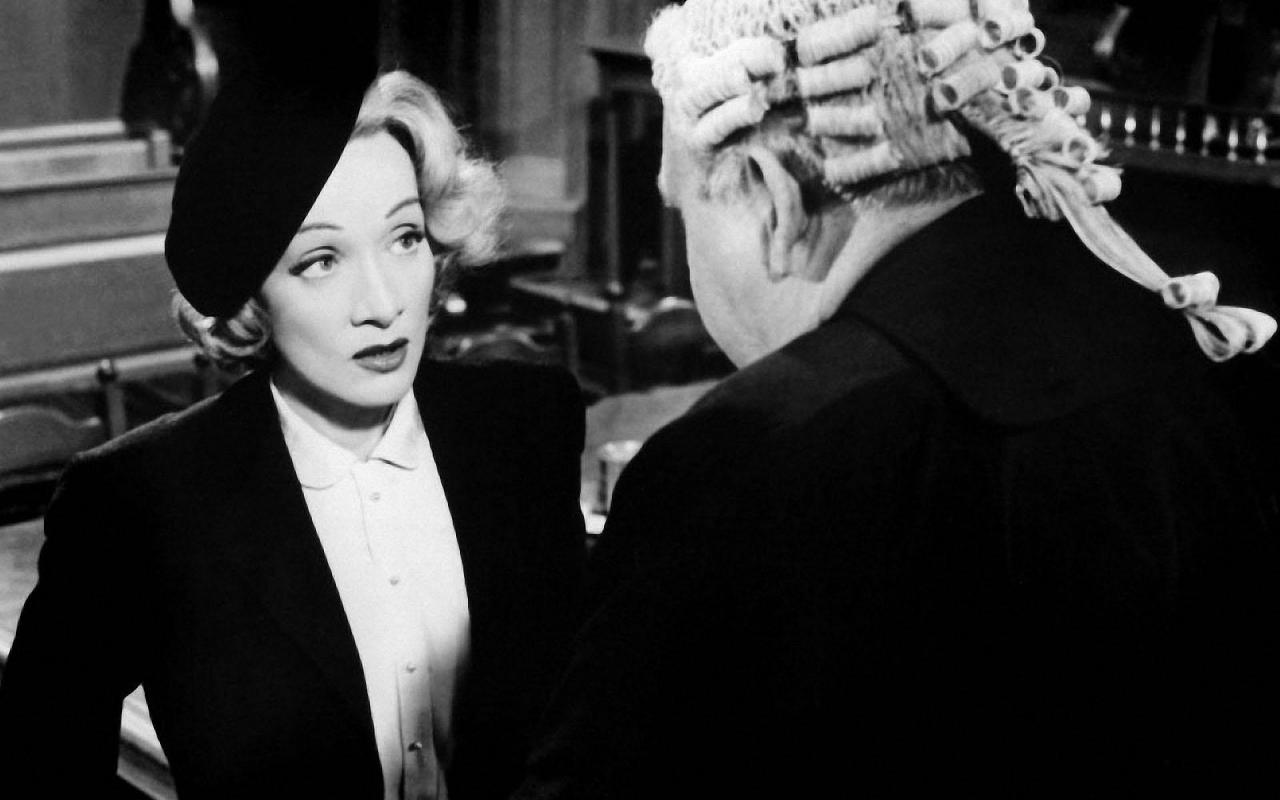
This film has it all, Wilder in the director’s seat, a story inspired by the queen of mystery herself Agatha Christie and the amazing performance of Marlene Dietrich. Laughton, who was directing the previous film we commented on, gives a compelling performance in this one as well.
Dietrich is however unmatched in her delivery of the titular character. We are slowly guided into her character, and she appears to be even more mysterious as we get to know about her motives and desires.
The case, which has Dietrich being a witness for the prosecution that might end up sentencing her husband for murder, is handled by the lawyer played by Laughton who is the spectator in the film. Through him we learn of Christine, the character played by Dietrich, and she in all of her effort and trial, ends up being as much of a tragic piece of the puzzle as we are led to believe her husband was.
The breakdown of the film is kept hidden, and that’s what builds the suspense in all the scenes and it all lead up to that grand finale which is an excellent pay off to a great movie.
5. Touch of Evil
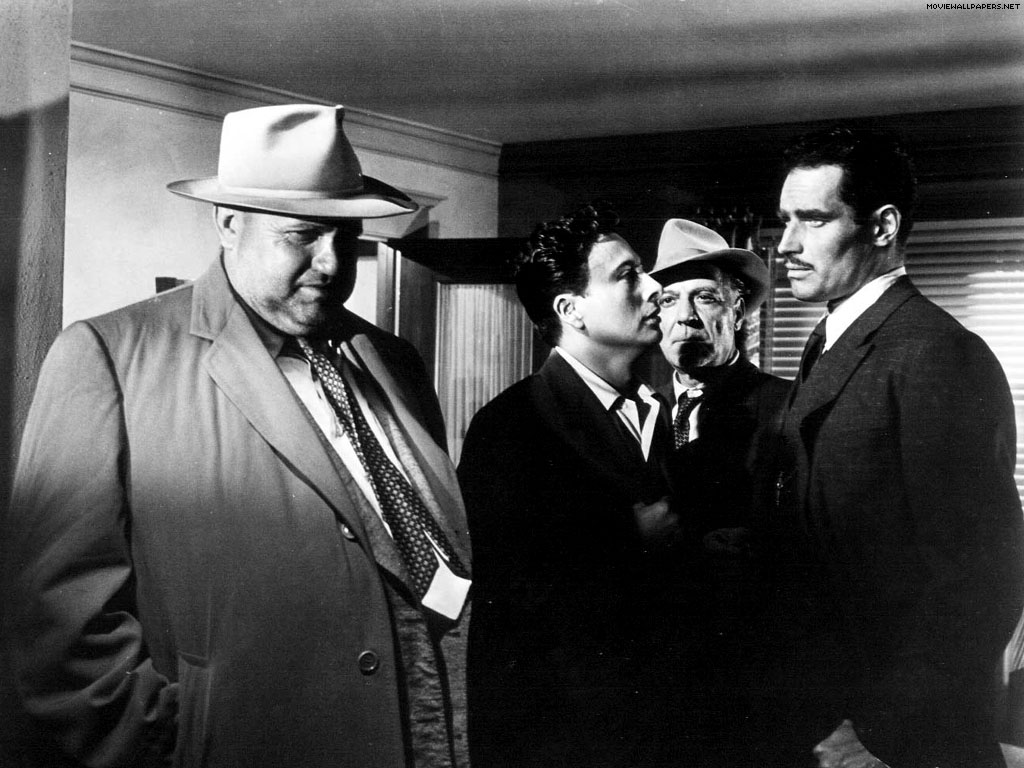
Most commonly referred to as the final noir. The tale that brings a little town on the Mexican-American border alive! It’s hot, it’s tense and it’s intercultural. It’s the blending of two cultures wrapped in a mystery that seems once it gets solved then it opens a new one and provides a third one in the making. It’s a constantly developing film that leaves very little to be distracted with.
The contrast of Welles and Heston as protagonist-antagonist plays very well into clearing the sides for the film’s overall narrative in the clash of these two. Welles does what he does best, an odd criminal character that is characterized by the special touch and soul he brings to it. Heston is of course the typical hero, which is what Heston does best as well. The duo works well with the third and very present character, which we previously mentioned, the border town. It’s a place as they say that: “worst in the country.”
The opening scenes is one long tracing shot that went down in film history as one of its best, and it’s the perfect exposition to take all the story in motion. Touch of Evil is a wonderful crown to the classical noir.